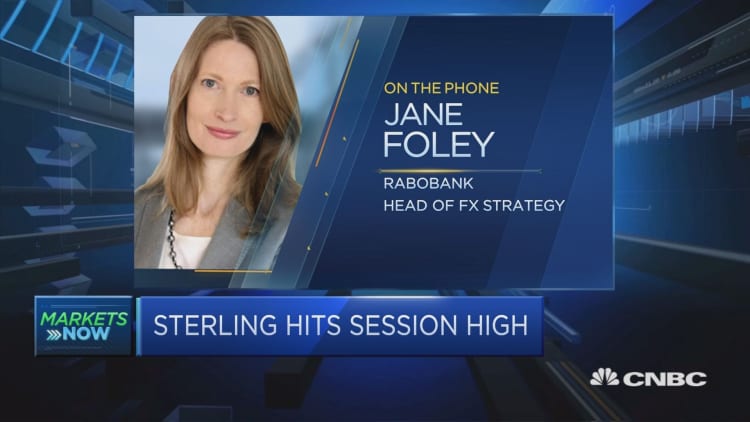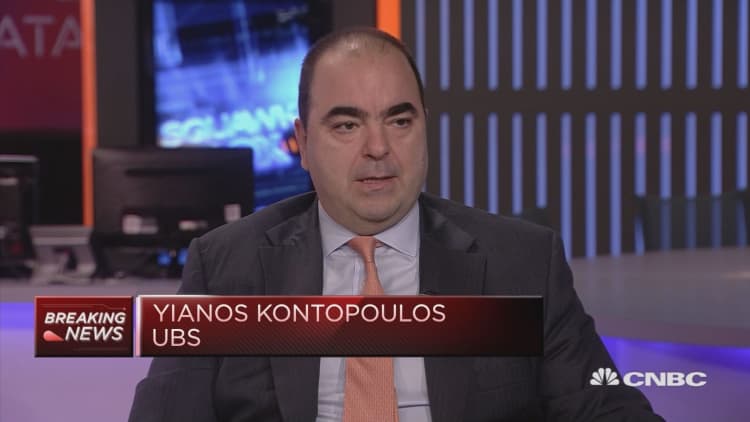Currency markets in Europe fluctuated on Friday morning after the U.K. made "sufficient progress" in its Brexit negotiations, with experts split on where sterling could trade in the coming months.
Sterling initially dipped on the Brexit announcement made from Brussels after jumping to 1.3514 against the dollar just prior to the announcement by European Commission President Jean-Claude Juncker. After falling to 1.3456 against the greenback at around 7:00 a.m. London time, it sharply rebounded to a session high of 1.3517. It then seesawed back down to below the 1.350 mark by 9:00 a.m. London time. Meantime, the euro fell to a six-month low against the British pound.
Nonetheless, sterling looks to advance in the short-term, according to Derek Halpenny, European head of global markets research at MUFG. He believes that Friday's market response did not equate to the importance of the U.K. getting beyond the first phase of negotiations. "The deal will help ease concerns over the uncertainty surrounding the cliff-edge risk associated with March 2019," he said in an emailed statement.

The announcement will crucially allow the EU and the U.K. to proceed on trade talks, though anticipation of a breakthrough seems to have been baked into sterling's early morning rise on the market's expectations that a deal would be reached.
U.K. Prime Minister Theresa May affirmed that a hard Irish border — one of the main hurdles in the negotiations — would not be imposed, while at the same time insisting that the U.K.'s "economic integrity" would be protected, implying a departure from the EU customs union which allows free movement of goods and people among all EU member states.
'A big If'
Jane Foley, head of foreign exchange at Rabobank, warned that balancing these two desires may prove easier said than done. "It's quite difficult to reconcile in my mind how that will be maintained when there is no hard border so there is clearly still some clarity needed, some work to be done. If the trade negotiations start, phase two could be quite difficult," she told CNBC.
"On the assumption there was going to be a move onto trade deals before the end of the year, I'd say a lot of that was in the price, so yes there are upsides to sterling but they will be moderate because we just don't know the tone of those trade talks ... It's a big if," Foley added.

MUFG's Halpenny predicts a positive trajectory for sterling. "We are optimistic that agreeing a transition deal will not prove difficult ... Our optimistic forecast for the pound going forward (above the 1.4000 level in 2018) is now more achievable after this important step today."
'No fireworks'
Meanwhile, Simon Derrick, chief currency strategist at BNY Mellon, cautioned against forecasting sustained strength for sterling against the dollar, given that the greenback is expected to perform well against a range of currencies on the back of higher yields. The Federal Reserve is expected to continue hiking its main benchmark rate next year.
"Against the EUR (euro) it could fare a little better - EUR 0.84 to EUR 0.85," he told CNBC.
"However, I don't see anything dramatic given that GBP seems to have found a pretty natural level between EUR0.85 and EUR0.90 in recent months with no huge stresses in the markets," he told CNBC via email. "In other words, no fireworks."


